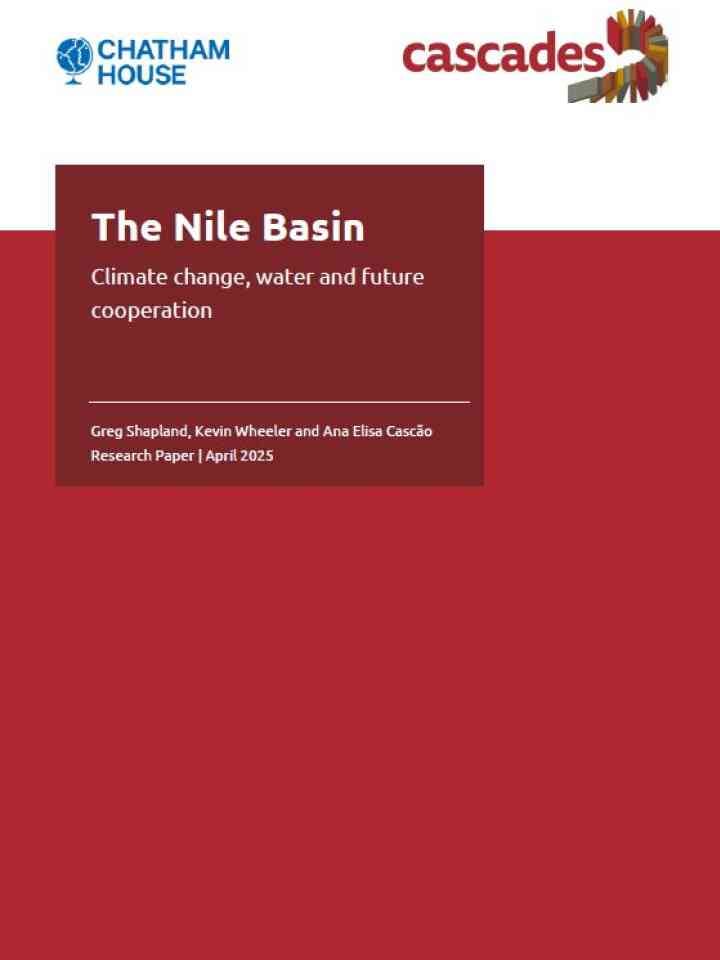The Nile Basin: climate change, water and future cooperation
This report explores how climate risks could affect the environment, economies, societies and politics of the countries of the Nile Basin and the political relations between them. The future impact of climate change on rainfall and hence river flows in the Nile Basin is very unclear. Projections indicate a wide range of possible outcomes by mid-century: most show an increase in rainfall (although to very varying degrees) while a few suggest a slight decrease. Temperature projections are much more consistent and indicate higher temperatures across the Basin. This will cause more evaporation from bodies of water and across the landscape, reducing water availability. There are direct implications for farming: crops will need more water per tonne of output.
All those who live in the Nile Basin will be affected in some way by climate change and especially by the extreme weather events which it will bring. Agricultural sectors, important in economic and social (employment) terms, are likely to be hard hit by climate impacts. Egypt faces an additional challenge: the effect of sea-level rise on the populous and productive Nile Delta. Population growth will certainly mean less water per person. It will also mean increased dependence on imported food, even if climate change does bring more rain to the Basin. Egypt, Ethiopia and Sudan share the waters of the Eastern Nile Basin. Ethiopia is by far the largest source of Nile water and Egypt by far the largest user – and the most heavily dependent on the river. Egypt and Sudan signed a treaty in 1959 which allocates the resource between them but provides no water quotas for the upstream users, who neither recognize nor are bound by it. Negotiations aimed at reaching a legal and institutional agreement covering the whole Nile Basin – the Cooperative Framework Agreement (CFA) – stalled in 2010 over Egypt’s concerns about existing uses of the Nile waters. Technical cooperation among the Nile Basin countries has continued, primarily within the framework of the Nile Basin Initiative (NBI), a partnership among 10 countries.
Explore further
